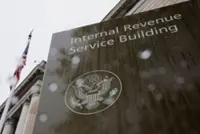NEW YORK: The precious-metals business at JPMorgan Chase & Co operated for years as a corrupt group of traders and sales staff who manipulated gold and silver markets for the benefit of the bank and its prized clients, a federal prosecutor has told jurors in Chicago.
“This case is about a criminal conspiracy inside one of Wall Street’s largest banks,” said Lucy Jennings, a prosecutor with the Justice Department’s fraud section. “To make more money for themselves, they decided to cheat.”





